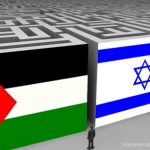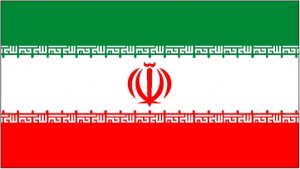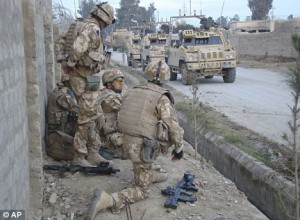Tuesday
Mar092010
Israel-Palestine: "Proximity Talks" and US Vice President Biden
 Tuesday, March 9, 2010 at 15:55
Tuesday, March 9, 2010 at 15:55  Here's the background: last Friday, US Mideast Special Envoy George Mitchell's deputy, David Hale, said Israeli-Palestinian understandings since the Annapolis talks would not be binding.
Here's the background: last Friday, US Mideast Special Envoy George Mitchell's deputy, David Hale, said Israeli-Palestinian understandings since the Annapolis talks would not be binding.Following the approval of two conditions (the outlines of a border deal with Israel and a complete Israeli settlement construction freeze) by the Palestinian Liberation Organization executive committee, Israel's Prime Minister Benjamin Netanyahu said on Monday that he hoped for direct negotiations in the near future, but reiterated that any permanent settlement would require recognition of Israel as a Jewish state and a long-term guarantee of Israel's security.
Thus, the clear difference between two disputants' mentalities: on one hand, Ramallah is considering indirect talks as a basis to be consolidated in order to move to the next round of direct talks; on the other hand, West Jerusalem sees indirect talks as a way to block preconditions.
In the midst of Defense Minister Ehud Barak's permission for the construction of 112 housing units in the settlement of Beitar Ilit, despite the construction freeze in the West Bank settlements, U.S. Vice President Joe Biden arrived Israel on Tuesday while Mitchell moved to Ramallah for further talks.
Biden, on early Tuesday, met President Shimon Peres. He said that the agreed resumption of Israeli-Palestinian talks provided a "moment of real opportunity" for peace and added:
The interests of both the Palestinians and the Israeli people, if everyone would just step back and take a deep breath, are actually very much more in line than they are in opposition.
Then, Biden talked to PM Netanyahu. He said that "historic peace will require both sides to make historically bold commitments" and gave the golden statement:
There is no space between the United States and Israel when it comes to Israel's security.
When it came to the Iranian issue, Biden said: "We're determined to prevent Iran from acquiring nuclear weapons and we're working with many countries around the world to convince Tehran to meet its international obligations and cease and desist." President Peres harshly targeted Iranian President Mahmoud Ahmadinejad. He stated that Ahmadinejad must face "total" international isolation and added:
A person like Ahmadinejad, who calls openly to destroy the state of Israel, cannot be a full member of the United Nations.
A man who calls for acts of terror, and who hangs people in the street ... he should be placed in his proper definition. He cannot go around almost like a cultural hero.
Ahmadinejad has to be isolated and not be welcomed in the capitals of the world.
tagged  Ahmed Qurei,
Ahmed Qurei,  Annapolis,
Annapolis,  Benjamin Netanyahu,
Benjamin Netanyahu,  David Hale,
David Hale,  Ehud Barak,
Ehud Barak,  Ehud Olmert,
Ehud Olmert,  George Mitchell,
George Mitchell,  Iran,
Iran,  Israel,
Israel,  Israeli settlements,
Israeli settlements,  Joe Biden,
Joe Biden,  Mahmoud Abbas,
Mahmoud Abbas,  Mahmoud Ahmadinejad,
Mahmoud Ahmadinejad,  Obama Administration,
Obama Administration,  Palestinian Authority,
Palestinian Authority,  Palestinian Liberation Organization,
Palestinian Liberation Organization,  Shimon Peres,
Shimon Peres,  Tzipi Livni,
Tzipi Livni,  United Nations,
United Nations,  West Bank in
West Bank in  Middle East & Iran
Middle East & Iran
 Ahmed Qurei,
Ahmed Qurei,  Annapolis,
Annapolis,  Benjamin Netanyahu,
Benjamin Netanyahu,  David Hale,
David Hale,  Ehud Barak,
Ehud Barak,  Ehud Olmert,
Ehud Olmert,  George Mitchell,
George Mitchell,  Iran,
Iran,  Israel,
Israel,  Israeli settlements,
Israeli settlements,  Joe Biden,
Joe Biden,  Mahmoud Abbas,
Mahmoud Abbas,  Mahmoud Ahmadinejad,
Mahmoud Ahmadinejad,  Obama Administration,
Obama Administration,  Palestinian Authority,
Palestinian Authority,  Palestinian Liberation Organization,
Palestinian Liberation Organization,  Shimon Peres,
Shimon Peres,  Tzipi Livni,
Tzipi Livni,  United Nations,
United Nations,  West Bank in
West Bank in  Middle East & Iran
Middle East & Iran 



